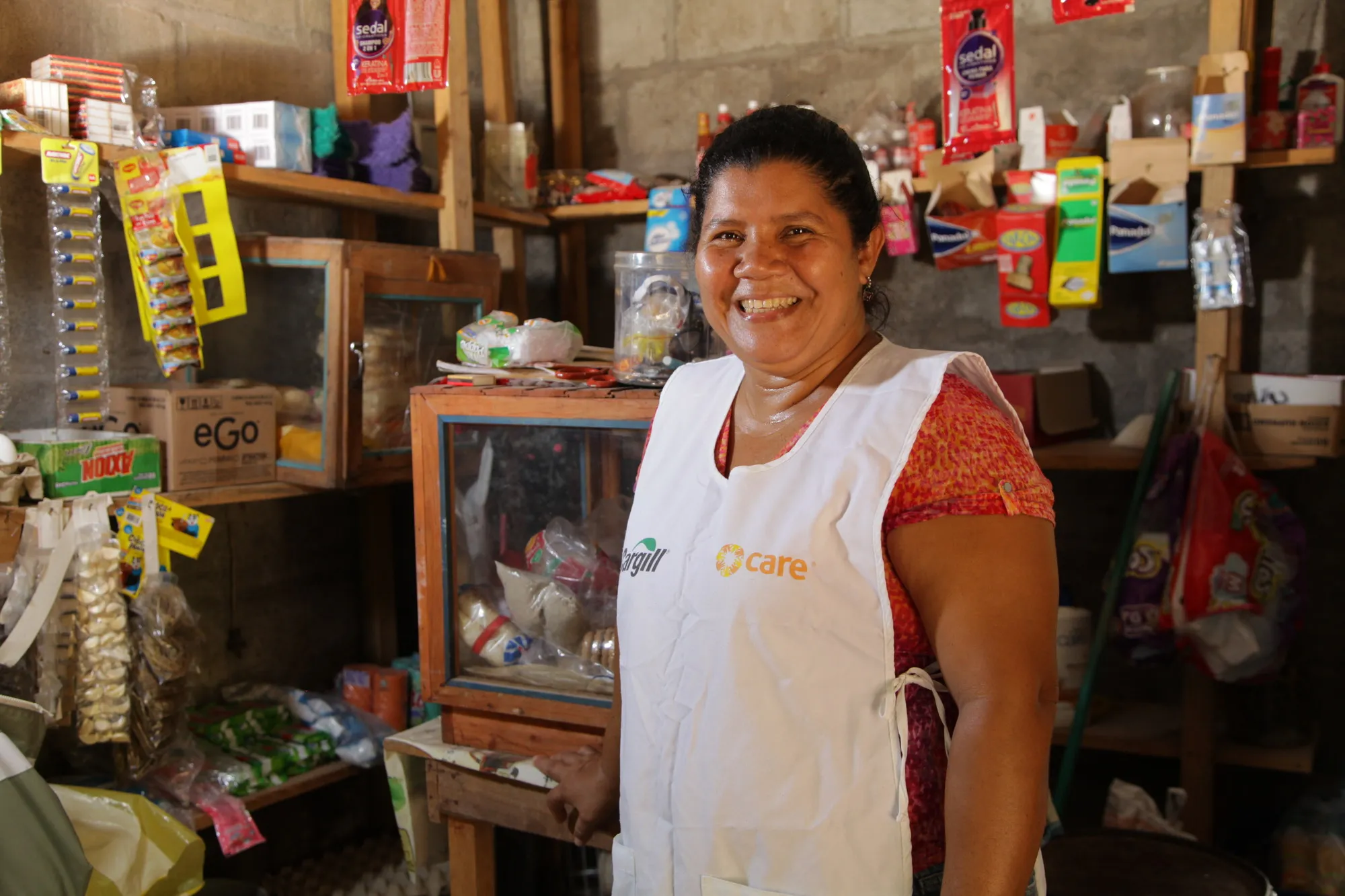Reina Reyes, 45, lives in Villanueva, Honduras, where she sold tamales and ran a small grocery store until COVID-19 hit her community. Villanueva sits in the department of Cortes, one of the areas worst affected by COVID-19 in the country.
“This crisis has affected us a lot,” Reina says. “We have been locked up and I have not been able to sell my products because I have to move to the market to buy supplies and right now, we are not able to do so. The grocery store has helped us avoid going hungry these last 15 days, but we only had two days of food left when CARE called us to deliver a package of rations. With that help we are surviving.”

